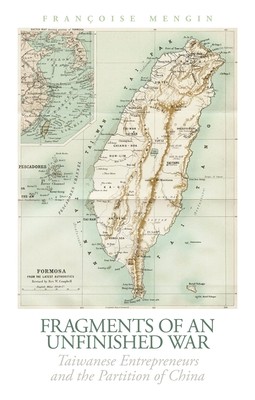
- We will send in 10–14 business days.
- Author: Françoise Mengin
- Publisher: Oxford University Press, USA
- ISBN-10: 0190264055
- ISBN-13: 9780190264055
- Format: 15.8 x 23.9 x 3.1 cm, hardcover
- Language: English
- SAVE -10% with code: EXTRA
Reviews
Description
The Republic of China that retreated to Taiwan in 1949 maintains its de facto, if not de jure, in- dependence yet Beijing has consistently refused formally to abandon the idea of reunifying Taiwan with China. As well as growing military pressure, the PRC's irredentist policy is premised on encouraging cross-Straits economic integration. Responding to preferential measures, Taiwanese industrialists have invested massively in the PRC, often relocating their businesses there. Fragments of a nation torn apart by contradictory claims, these entrepreneurs are vectors of a new form of unification imposed by the main- land, promoted but postponed on the island by the Nationalist Party, and rejected by Taiwanese pro-independence parties.
Within what can be described as an unfinished civil war, socio-economic dynamics remain embedded in conflicts over sovereignty. Trans- national actors have freed themselves from security constraints, thereby benefiting economically from a reformist China, and ultimately restructuring politics in Taiwan itself, and, in so doing, relations between Beijing and Taipei. A fictitious depoliticization has governed the opening of the Sino-Taiwanese border in order to postpone any resolution of the sovereignty issue. Mengin's startlingly original book highlights the competing, and fragmented, elements within one of the world's most intractable territorial disputes.EXTRA 10 % discount with code: EXTRA
The promotion ends in 17d.21:44:16
The discount code is valid when purchasing from 10 €. Discounts do not stack.
- Author: Françoise Mengin
- Publisher: Oxford University Press, USA
- ISBN-10: 0190264055
- ISBN-13: 9780190264055
- Format: 15.8 x 23.9 x 3.1 cm, hardcover
- Language: English English
The Republic of China that retreated to Taiwan in 1949 maintains its de facto, if not de jure, in- dependence yet Beijing has consistently refused formally to abandon the idea of reunifying Taiwan with China. As well as growing military pressure, the PRC's irredentist policy is premised on encouraging cross-Straits economic integration. Responding to preferential measures, Taiwanese industrialists have invested massively in the PRC, often relocating their businesses there. Fragments of a nation torn apart by contradictory claims, these entrepreneurs are vectors of a new form of unification imposed by the main- land, promoted but postponed on the island by the Nationalist Party, and rejected by Taiwanese pro-independence parties.
Within what can be described as an unfinished civil war, socio-economic dynamics remain embedded in conflicts over sovereignty. Trans- national actors have freed themselves from security constraints, thereby benefiting economically from a reformist China, and ultimately restructuring politics in Taiwan itself, and, in so doing, relations between Beijing and Taipei. A fictitious depoliticization has governed the opening of the Sino-Taiwanese border in order to postpone any resolution of the sovereignty issue. Mengin's startlingly original book highlights the competing, and fragmented, elements within one of the world's most intractable territorial disputes.

Reviews